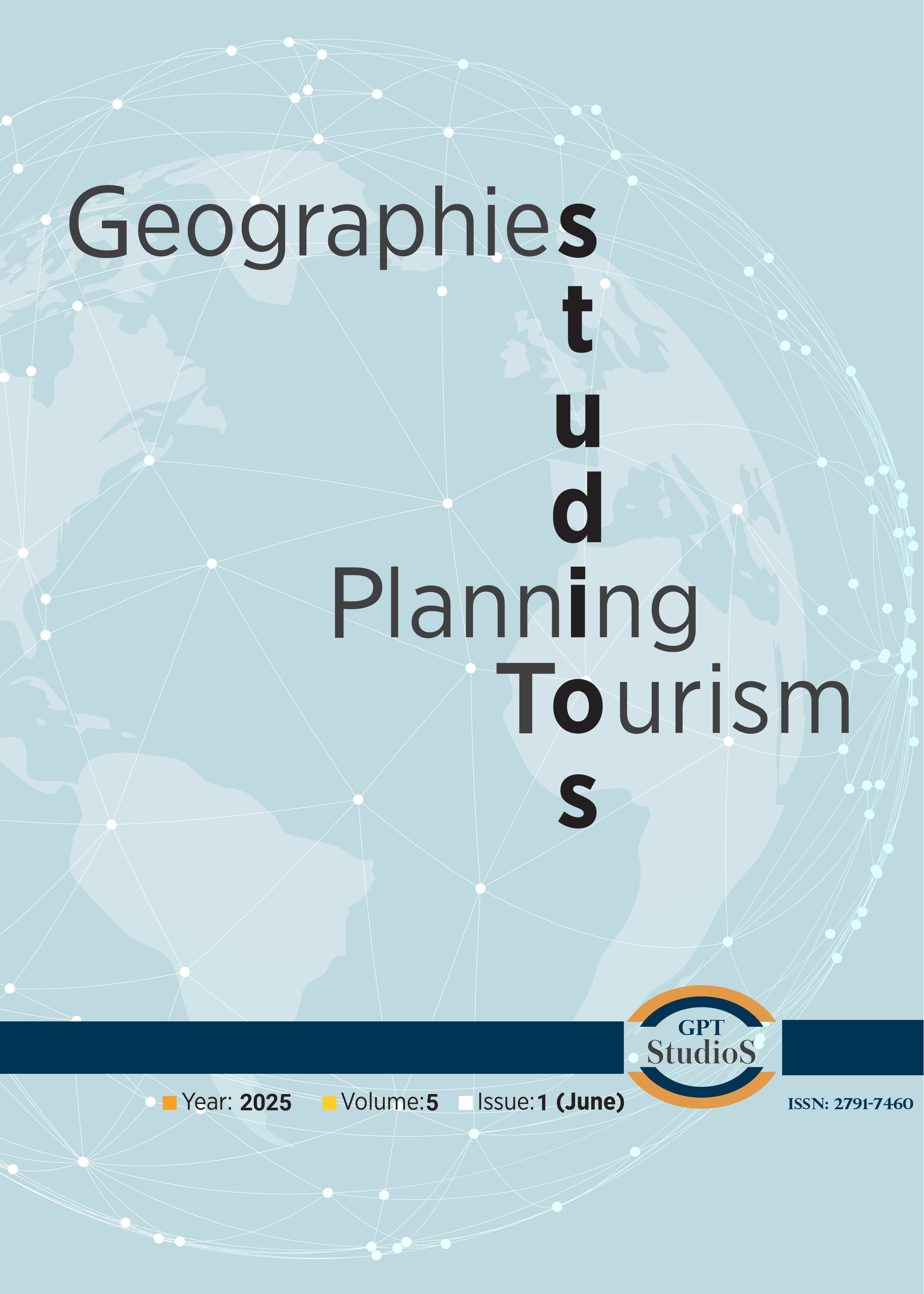
Articles are Open Access and Licensed under a Creative Commons Attribution-NonCommercial 4.0 International License.
Do Airports in Rural Areas in Turkey Support Rural Tourism? Or does it Threaten Rural Tourism?
Gönül AkýnIstanbul Beykent UniversityIn recent years, the tendency towards rural tourism has increased with the desire to be away from crowds and the noise, in favor of a peaceful vacation in close contact with nature. The purpose of this research is to determine whether airports established in rural areas promote or threaten rural tourism. According to OECD, the rural tourism potential and current situation of air transportation in 34 cities, which are considered rural areas in Türkiye, were investigated. Within the scope of the study, 16 cities in Turkey classified as rural areas and equipped with airports were selected, with Kars in the east and Muðla in the west; and 18 cities without airports were chosen, including Ardahan in the east and Kýrklareli in the west. One-on-one interviews were conducted with domestic tourists who visited these four cities, which are important in terms of rural tourism, for rural tourism purposes. The qualitative research method was determined for the study, and the data obtained from the participants were subjected to content analysis, through which main themes, sub-themes, and codes were created. According to the findings of the research, domestic tourists state that rural tourism is not sufficiently developed in rural areas where there is no airport, and thanks to an airport to be built, rural areas can attract more tourists and develop economically. On the other hand, while airports provide advantages in transportation in the cities where they are located, factors such as destruction of agricultural lands and forests, urbanization, environmental and noise pollution are perceived as a threat to rural tourism. At the end of the research, recommendations were made for the sector.
Keywords: Rural tourism, Rural area, Airport, Airport transportation, TürkiyeTürkiye'de Kýrsal Alanlar Üzerine Kurulu Havalimanlarý Kýrsal Turizme Teþvik mi? Tehdit mi?
Gönül AkýnÝstanbul Beykent ÜniversitesiSon yýllarda kalabalýk ve gürültüden uzak olma, doðayla iį iįe, sakin ve huzurlu bir tatil yapma isteðiyle kýrsal turizme yönelim artmýþtýr. Araþtýrmanýn amacý, kýrsal alana kurulmuþ havalimanlarýnýn kýrsal turizmi teþvik mi, yoksa tehdit mi ettiðinin belirlenmesidir. OECD verilerine göre, Türkiyede kýrsal alan kabul edilen 34 þehrin kýrsal turizm potansiyeli ve havayolu ulaþýmýnýn mevcut durumu araþtýrýlmýþtýr. Araþtýrma kapsamýnda, Türkiyede kýrsal alan kabul edilen ve havalimaný bulunan 16 þehirden doðudan Kars, batýdan Muðla; havalimaný bulunmayan 18 þehirden ise doðudan Ardahan, batýdan Kýrklareli seįilmiþtir. Kýrsal turizm aįýsýndan önemli olan bu dört þehri kýrsal turizm amacýyla ziyaret eden yerli turistlerle birebir görüþmeler yapýlmýþtýr. Araþtýrmada nitel araþtýrma yöntemi belirlenmiþ ve katýlýmcýlardan elde edilen veriler iįerik analizine tabi tutularak ana tema, kategori ve kodlar oluþturulmuþtur. Araþtýrmada elde edilen bulgulara göre, yerli turistler havalimaný bulunmayan kýrsal alanlarda kýrsal turizmin yeterince geliþmediðini, ulaþýmýn da bunda bir payýnýn olabileceðini ifade etmektedirler. Katýlýmcýlara göre, inþa edilecek bir havalimaný sayesinde kýrsal alanlar daha fazla turist įekebilir ve ekonomik aįýdan geliþebilirler. Öte yandan, havalimanlarý bulunduklarý þehirlerde, ulaþýmda avantaj saðlarken, tarým arazilerinin ve ormanlarýn tahrip edilmesine, kentleþmeye, įevre ve gürültü kirliliðine sebep olmasý gibi unsurlar kýrsal turizm aįýsýndan bir tehdit olarak algýlanmaktadýr. Bu įalýþma kýrsal turizmin sürdürülebilirliðinde havalimanlarýnýn rolüne yönelik önemli katkýlar sunmaktadýr. Araþtýrma sonunda havalimanlarýnýn olumlu etkilerini arttýrmak, olumsuz etkilerini azaltmak adýna sektöre yönelik tavsiyelerde bulunulmuþtur.
Anahtar Kelimeler: Kýrsal turizm, Kýrsal alan, Havalimaný, Havayolu ulaþýmý, TürkiyeManuscript Language: Turkish











